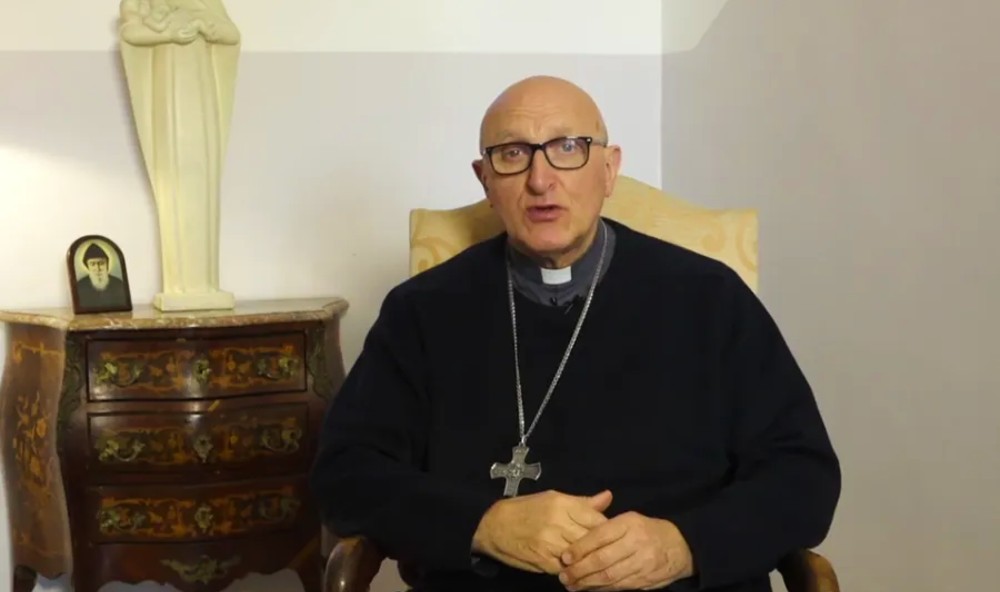A gift to the living: An advance directive ensures final wishes are carried out
FREE Catholic Classes
The Orlando Sentinel (MCT) - You would have liked my Uncle Eddie.
Highlights
McClatchy Newspapers (www.mctdirect.com)
2/6/2009 (1 decade ago)
Published in Marriage & Family
After he died last month, I heard it over and over again: Eddie didn't have an enemy in the world.
He was loving, fun and utterly devoted to his family. My heart was aching as I stood by his hospital bed in early January.
Uncle Eddie was alive but already gone. He had suffered a brain aneurysm and never regained consciousness. His respirator was removed after doctors agreed that he would not recover.
It was so hard to let him go. But it would have been worse if my uncle did not have a living will to make his preferences known.
Have you done the same for your family?
"It ultimately serves as a gift to the people you're leaving behind," said Dr. Chad Kollas, medical director of palliative and supportive care at M.D. Anderson Cancer Center Orlando. "They can say that they know what their loved one wanted and they've done right by them. It can be very comforting."Let's start with some definitions.
A living will is a type of advance directive, or written instructions that describe your wishes when you cannot communicate with your doctors. A living will focuses specifically on life-prolonging medical care.
It allows you to say when you want, and do not want, to be kept alive by artificial means, explained Barbara Coenson, an attorney and partner with the KM Jackson Law Firm in Orlando.
In addition to a living will, you may want to designate a health care surrogate, or a person who makes medical decisions on your behalf. Your surrogate calls the shots whenever you are incapacitated and need medical care.
Some documents allow you to make your living will and appoint a health care surrogate on the same form. Other times, you have to fill out two separate documents.
In Florida, if you do not choose a surrogate, Coenson said that state law dictates who can speak on your behalf. In this situation, the person is called a health care proxy. The proxy will be the spouse, an adult child, a parent, adult siblings or even a close friend, depending on the circumstances.
Some people choose to skip the living will and rely solely on their health-care surrogates to make decisions for them about life-prolonging care, said Steve Cecchetti, planned giving counselor at Hospice of the Comforter. They want to give their surrogates flexibility to respond to the specific circumstances that arise.
The downside is that your designee may waver or simply not know what to do when the time comes. The written document provides proof of the patient's desires, said Bob Burns, a chaplain at Florida Hospital Orlando. This can be helpful, for example, when a patient is newly married and family members are concerned about the choices being made by the spouse. A living will may ease family conflict.
A living will can be as detailed or vague as desired. You may indicate broadly that you do not want "life-prolonging" medical care if you're in a persistent, vegetative state or other conditions.
You also can pick and choose specific treatments. For example, you can forgo life support but still receive nutrition and water through a feeding tube. Coenson said some people put a time limit on their care, as well.
If family members don't want to follow the living will, things can get more complicated. Hospitals may bow to the wishes of the family if they push strongly to continue life support, Burns said. The cases can end up in court. That's why it's not enough to simply have a living will. You need to talk to your loved ones about your preferences to reduce the possibility of disputes.
You don't need an attorney to make a living will, and you can get the documents for free. If you prefer, you can pay an attorney to do it, but that's not required in Florida.
Florida law requires that you sign your living will and/or health-surrogate form in front of two witnesses. One of them cannot be your spouse or a blood relative. If you move to another state, you should do another living will and follow the new state's guidelines.
(EDITORS: BEGIN OPTIONAL TRIM)
Everyone age 18 and older who is mentally competent can make a living will, and Kollas doesn't advise waiting until you need it. It's much easier to consider your options and make clear-headed decisions when you're not facing a terminal diagnosis or other critical situation, Kollas said.
Make copies and give one to your primary-care physician to keep in your file.
Discuss your preferences in detail with your health-care surrogate. Store the original document with your other important papers and make sure your family knows that you have a living will.
(END OPTIONAL TRIM)
Alison Issen, community education coordinator for Hospice of the Comforter, suggests reviewing your living will every five years and signing it again with witnesses. But that's not legally required.
She suggests discussing your choices with all the people who think that they should have a say in your care.
"It doesn't have to be a big deal; you might start the conversation by acknowledging that it's a little uncomfortable 1/8to talk about3/8 but then just put it on the table," Issen said.
___
HOW TO GET A LIVING WILL
Most hospitals can provide you with the basic forms.
The national group Aging With Dignity provides help through its "Five Wishes" program. The wishes help you make decisions on your medical care and health-care surrogate. Call 1-888-594-7437 or visit agingwithdignity.org for more information. There is a fee of about $5 per copy.
You can also see an attorney to have a living will drawn up.
Visit the Florida Bar Association's Web site at floridabar.org. You can print out Living Will and Health Care Surrogate forms from the site.
___
Join the Movement
When you sign up below, you don't just join an email list - you're joining an entire movement for Free world class Catholic education.
-

-
Mysteries of the Rosary
-
St. Faustina Kowalska
-
Litany of the Blessed Virgin Mary
-
Saint of the Day for Wednesday, Oct 4th, 2023
-
Popular Saints
-
St. Francis of Assisi
-
Bible
-
Female / Women Saints
-
7 Morning Prayers you need to get your day started with God
-
Litany of the Blessed Virgin Mary
Meta's New Commitment to Free Speech and Its Potential Impact on Online Discourse
-

Pope Francis Accepts Resignation of Bishop Dominique Rey of Frejus-Toulon
-

Bound by Betrayal: Katie's Struggle with Lust, Lies, and Redemption
-
John: A Story of Addiction, Hopelessness, and the Search for Redemption
-
Science vs. Faith: The Battle for Truth and Hope
Daily Catholic
 Daily Readings for Wednesday, January 08, 2025
Daily Readings for Wednesday, January 08, 2025 St. Thorfinn: Saint of the Day for Wednesday, January 08, 2025
St. Thorfinn: Saint of the Day for Wednesday, January 08, 2025 Prayer for a Blessing on the New Year: Prayer of the Day for Tuesday, December 31, 2024
Prayer for a Blessing on the New Year: Prayer of the Day for Tuesday, December 31, 2024- Daily Readings for Tuesday, January 07, 2025
- St. Raymond of Pennafort: Saint of the Day for Tuesday, January 07, 2025
- St. Theresa of the Child Jesus: Prayer of the Day for Monday, December 30, 2024
![]()
Copyright 2024 Catholic Online. All materials contained on this site, whether written, audible or visual are the exclusive property of Catholic Online and are protected under U.S. and International copyright laws, © Copyright 2024 Catholic Online. Any unauthorized use, without prior written consent of Catholic Online is strictly forbidden and prohibited.
Catholic Online is a Project of Your Catholic Voice Foundation, a Not-for-Profit Corporation. Your Catholic Voice Foundation has been granted a recognition of tax exemption under Section 501(c)(3) of the Internal Revenue Code. Federal Tax Identification Number: 81-0596847. Your gift is tax-deductible as allowed by law.







 Daily Readings for Wednesday, January 08, 2025
Daily Readings for Wednesday, January 08, 2025 St. Thorfinn: Saint of the Day for Wednesday, January 08, 2025
St. Thorfinn: Saint of the Day for Wednesday, January 08, 2025 Prayer for a Blessing on the New Year: Prayer of the Day for Tuesday, December 31, 2024
Prayer for a Blessing on the New Year: Prayer of the Day for Tuesday, December 31, 2024

